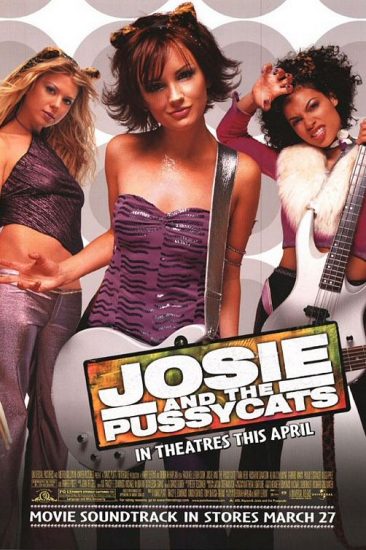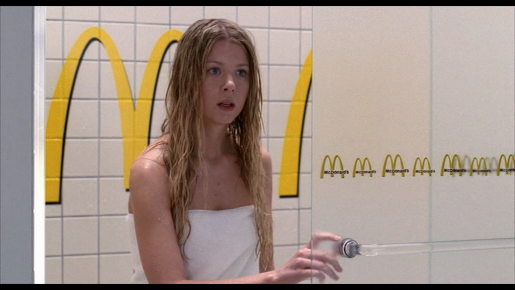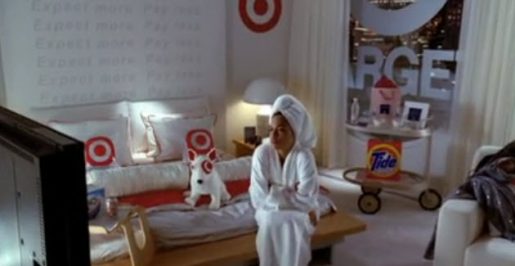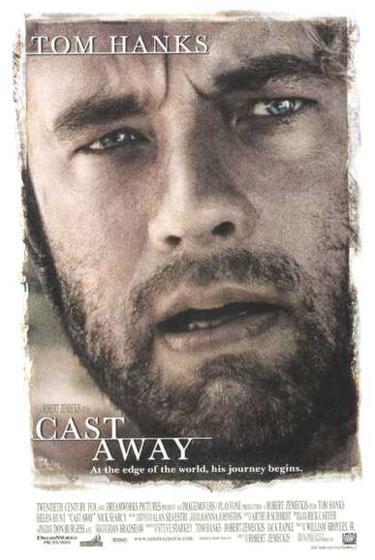Did Josie and the Pussycats Not Receive Any Money for Product Placement?
Here is the latest in a series of examinations into urban legends about movies and whether they are true or false. Click here to view an archive of the Movie urban legends featured so far.
MOVIE URBAN LEGEND: Josie and the Pussycats did not receive any money for the excessive product placement within the film.
Josie and the Pussycats was a film adaptation of the Archie comic book series (and animated series) of the same name that came out in 2001, starring Rachael Leigh Cook, Tara Reid and Rosario Dawson as Josie and the Pussycats, respectively.

The film was famous at the time (or infamous?) for its constant use of product placement within the film.


A few of my friends were discussing the movie recently on Facebook, and my buddy Mark noted:
Interestingly, the “product placements” were part of the satire, and according to the commentary, they weren’t actually product placements because they didn’t receive a dime from them. They just figured that using real world products would have a bigger impact than if it was fake products. Or at least that’s how I remember it from watching the commentary 15 years ago. Hey Brian Cronin, would that be a good Entertainment Legends Revealed? Did the movie Josie and the Pussycats actually get money from all the product placement?
Let’s find out!
As it turns out, it is a bit of a yes and no situation. Some time ago, I did a similar Movie Legend about FedEx and the Tom Hanks film Castaway.

In that instance, Robert Zemeckis noted that FedEx did not pay for product placement in the film. However, FedEx did provide the film with the FedEx materials needed to MAKE the film (the boxes, etc.) so while no money changed hands, does that still count as product placement?
How you answer that question will determine how you see the product placement in the film Josie and the Pussycats.
Yes, the excessive product placement in the film was a joke. However, a couple of things on that point. First, it was a joke, but it was one of those jokes where it was like, “Ha ha, isn’t it so funny that we are doing all this merchandising? Now, if you want to actually buy it from us, we WILL sell it to you, but we’re selling it to you ironically.” Secondly, does making it a joke make it so that it is not product placement?
The concept behind the movie is that the bad guys are using Josie and the Pussycats’ music to deliver subliminal messages to their fans. Thus, the joke is that the movie is doing a lot of the same stuff. So it is a meta-joke – “We’re satirizing how much product placement there is in movies by putting a lot of product placement into our movie.”
The writer/directors of the film, Harry Elfont and Deborah Kaplan, discussed the joke with the Los Angeles Times’ Rachel Abramowitz back in 2001:
“There’s an audience of, like, 8- to 14-year-old girls who just relate to this on a pure fun and pure wish-fulfillment level, where they’re girls, and they’re friends, and they’re in the band, and they go conquer the world,” Kaplan says, astutely dissecting the audience for the film, a viewpoint informed by the market research.
“And then there’s a level from 23 to 40 that sees the satire, and then there’s a small little section in there, that’s still taking the movie a little too much at face value and is very idealistic. And they wrote on their test cards, ‘I’m so offended, that you would try to sell stuff through this movie and who do you think we are!’ And, that’s what we’re making fun of. Why would we have an Evian sign inside the whale tank? Maybe we were too subtle with it?”
Indeed, one particularly irate viewer wrote into the Ain’t It Cool Web site with a second-by-second breakdown of the product-placement in the trailer, and fumed, “What kills the flick is crass commercialism,” adding, “the movie is a mind-numbing montage of fast commercial images.”
But here’s the thing. Yes, none of these companies paid to be in the film and in fact they had to sign waivers that not just allowed their logos to be used, but they had to acknowledge that they understood that the use of their logos was intended as a joke. Some companies, including Gap and Nike, refused to be in the movie as a result.
However, the companies that DID participate also gave tons of stuff for free to the film. Puma donated thousands of T-Shirts for extras to wear during one concert scene.
On top of that, there were companies who were NOT “part of the joke” that also delivered products, like the band in the film played Samick guitars. Samick didn’t pay for their guitars being used in the film, but had to promote the film in all of their 40,000 retail stores with posters and other promotional materials. That, to me, is just outright product placement. Or they used John Frieda hair products, who then used Josie and the Pussycats in some ads for John Frieda hair care. That’s just typical product placement.
So yes, to a certain extent, the film was mocking product placement, so I’ll give it a partial true for that, but in a bunch of other ways, this was just standard product placement 101, so I’ll give it a partial false for that.
By the way, if you want to learn about a classic film that actually was ENTIRELY intended to be product placement, check out this old Movie legend.
The legend is….
STATUS: True if you count it as strictly “no money exchanged hands,” but I’d say False otherwise.
Thanks to Mark for the suggestion!
Be sure to check out my archive of Movie Legends Revealed for more urban legends about the world of films.
Feel free (heck, I implore you!) to write in with your suggestions for future installments! My e-mail address is bcronin@legendsrevealed.com.






If they really wanted it to be a joke, why not use fake product names?
Reminds me of an adult webcartoonist I know who used what he thought was a fake vibrator name, did a cartoon using the name, then later found out it was a real product and he was bummed that he had unintentionally advertised it for free.
There’s a sequence in Loony Tunes: Back in Action where they’re joking about product placement for (IIRC) Wal-Mart while the product placement is going on.
Well, like what Fraser mentioned, the joke really works “best” when it really IS true product placement. But yes, it is a bit of a stretch as a joke either way.
[…] as a joke. Some companies, including Gap and Nike, refused to be in the movie as a result.”Did Josie and the Pussycats Not Receive Any Money for Product Placement? Reply With Quote […]